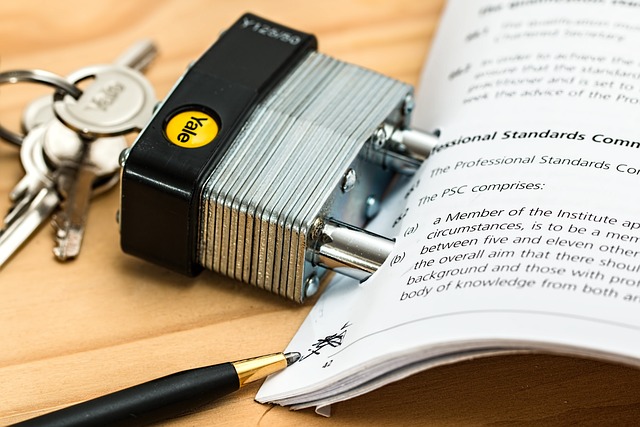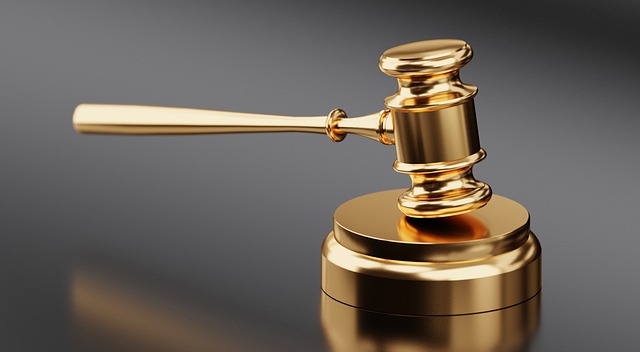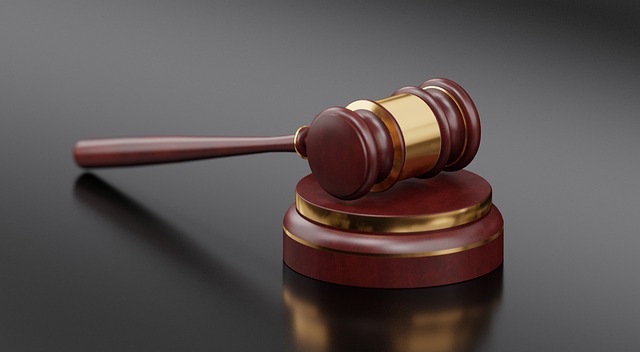In today’s fast-paced and highly competitive business world, employer-employee conflicts are not uncommon. As an employer or business owner, it is essential to have a solid understanding of employee dispute resolution to protect the interests of your organization. This article aims to provide you with valuable insights into the intricacies of employee dispute resolution, helping you navigate through legal challenges efficiently. By addressing the frequently asked questions surrounding this topic, you will gain a comprehensive understanding of the steps involved in resolving employee disputes and the importance of seeking professional legal counsel in such matters.
Introduction to Employee Dispute Resolution
Employee disputes are a common occurrence in the workplace and can have a significant impact on both employees and employers. Resolving these disputes in a fair and effective manner is crucial for maintaining a positive work environment and ensuring the productivity and success of the business. In this article, we will explore the different types and causes of employee disputes, as well as the benefits of implementing an effective dispute resolution process. We will also discuss the legal obligations of employers in dispute resolution, strategies for preventing employee disputes, and the various options available for resolving disputes, such as mediation, arbitration, and litigation. Lastly, we will address some frequently asked questions to provide further clarity on the topic.
Understanding Employee Disputes
Types of Employee Disputes
Employee disputes can arise in various forms and can encompass a range of issues. Some common types of employee disputes include conflicts between employees, disputes regarding wages or compensation, allegations of discrimination or harassment, disagreements over promotions or job assignments, and disputes stemming from disciplinary actions or terminations. Understanding the different types of employee disputes can help employers develop targeted strategies for resolving them effectively.
Causes of Employee Disputes
Employee disputes can have numerous underlying causes. Poor communication, misinterpretation of policies or procedures, conflicting values or personalities, inadequate supervision, and perceived unfair treatment are often at the root of these disputes. Additionally, workplace issues such as workload imbalance, lack of recognition or advancement opportunities, and cultural or diversity-related differences can contribute to employee dissatisfaction and conflict. Identifying the causes of employee disputes is essential for implementing preventative measures and addressing the root causes to avoid recurring issues.
Benefits of Effective Employee Dispute Resolution
Retaining Valuable Employees
Implementing an effective employee dispute resolution process can help retain valuable employees. When disputes are resolved promptly and fairly, employees feel heard and valued, which increases their job satisfaction and loyalty to the organization. By addressing and resolving employee concerns, employers can create a positive work environment that promotes employee retention and minimizes turnover.
Maintaining a Positive Work Environment
By addressing conflicts and resolving disputes in a fair and professional manner, employers can maintain a positive work environment. When employees feel that their concerns are taken seriously and their disputes are handled with integrity, it fosters a sense of trust and respect within the organization. A positive work environment contributes to higher employee morale, improved teamwork, and increased overall productivity.
Improving Productivity
Effective employee dispute resolution can have a direct impact on productivity. When disputes are left unresolved, they can escalate and create tension within the workplace. This tension can lead to decreased employee engagement, increased absenteeism, and a decline in overall productivity. By implementing a fair and efficient dispute resolution process, employers can address conflicts promptly, prevent further disruption, and ensure that employees can focus on their work without unnecessary distractions.

Employer’s Legal Obligations in Dispute Resolution
Understanding Employment Laws
Employers have legal obligations when it comes to resolving employee disputes. It is essential to have a solid understanding of relevant employment laws, such as anti-discrimination laws, wage and hour regulations, and laws governing employee rights. Familiarizing themselves with these laws allows employers to navigate dispute resolution processes in a manner that complies with legal requirements and protects the rights of both employees and the company.
Providing a Fair and Non-Discriminatory Resolution Process
Employers have an obligation to provide a fair and non-discriminatory resolution process for employee disputes. This includes ensuring that employees have access to a clear and transparent procedure for reporting their concerns, protecting employees from retaliation for filing complaints or participating in the dispute resolution process, and conducting investigations into employee allegations in an unbiased and thorough manner. By adhering to these obligations, employers can demonstrate their commitment to fairness and maintain compliance with employment laws.
Preventing Employee Disputes
Clear Communication and Expectations
Clear communication and setting clear expectations are key to preventing employee disputes. Employers should establish comprehensive policies and procedures and communicate them effectively to all employees. Regularly reminding employees of these policies and providing training on their interpretation and application can minimize misunderstandings and potential conflicts. By ensuring that employees understand their responsibilities, rights, and the consequences of their actions, employers can reduce the likelihood of disputes arising.
Regular Performance Evaluations
Regular performance evaluations are an essential tool in preventing employee disputes. By providing constructive feedback and discussing areas for improvement with employees, employers can address performance-related issues in a timely manner. This proactive approach allows employers and employees to work towards resolving concerns and preventing them from escalating into disputes. Regular evaluations also provide opportunities for employees to express their concerns and provide feedback, fostering open communication and understanding.
Conflict Management Training
Providing conflict management training to employees and supervisors can contribute significantly to preventing employee disputes. This training equips individuals with the skills and knowledge necessary to handle conflicts effectively, promotes effective communication and active listening, and teaches strategies for resolving disputes. By empowering employees and supervisors to address conflicts proactively and constructively, employers can create a workplace culture that prioritizes conflict prevention and resolution.
Creating an Effective Dispute Resolution Policy
Developing Clear and Transparent Procedures
To ensure an effective dispute resolution process, employers should develop clear and transparent procedures. These procedures should outline the steps employees should take when they have a dispute, provide guidance on how the company will respond to the dispute, and establish a timeline for resolving the issue. Clear procedures help employees understand what they can expect during the resolution process, instilling confidence in the fairness and effectiveness of the system.
Providing Multiple Resolution Options
Employers should provide multiple resolution options to accommodate the different needs and preferences of employees. This can include various methods such as informal discussions facilitated by a supervisor, mediation, arbitration, or even seeking legal counsel. By offering a range of options, employers can empower employees to choose the method that best suits their circumstances and preferences, increasing the likelihood of a successful resolution.
Establishing Timeframes and Deadlines
Setting timeframes and deadlines for each step of the dispute resolution process is crucial for its effectiveness. Clear timelines help manage expectations and ensure that disputes are resolved promptly. Employers should establish reasonable timeframes for employees to submit their concerns, for the company to investigate and respond, and for any subsequent steps in the resolution process. Adhering to these established timeframes reinforces the organization’s commitment to resolving disputes efficiently.
Mediation as a Dispute Resolution Option
Benefits of Mediation
Mediation can be a highly effective method for resolving employee disputes. It involves bringing a neutral third party, known as a mediator, into the dispute to facilitate communication and guide the parties towards a mutually agreeable solution. Mediation allows employees to express their concerns, helps them understand each other’s perspectives, and encourages them to find common ground. The benefits of mediation include increased employee satisfaction, reduced costs compared to litigation, and the preservation of ongoing working relationships.
Process of Mediation
In mediation, the mediator works with the parties involved in the dispute to identify the underlying issues and facilitate open and constructive dialogue. The mediator remains neutral throughout the process, helping to generate potential solutions and supporting the parties in reaching a resolution. Mediation sessions are typically confidential, voluntary, and conducted in a non-adversarial manner. The process is flexible, allowing the parties to tailor the discussions to their specific needs.
Role of a Mediator
A mediator plays a crucial role in the mediation process. They act as a neutral facilitator, guiding the parties towards a resolution while ensuring that each party has an opportunity to be heard. The mediator helps foster effective communication and manages any power imbalances or emotional dynamics that may arise during the mediation. Their goal is to assist the parties in reaching a mutually acceptable resolution that addresses their underlying interests.

Arbitration as a Dispute Resolution Option
Advantages of Arbitration
Arbitration is another alternative for resolving employee disputes. It involves presenting the dispute to a neutral third party, known as an arbitrator, who reviews the evidence and makes a binding decision. Some of the advantages of arbitration include its speed and efficiency, confidentiality, finality of the decision, and flexibility in selecting the arbitrator. Arbitration can be particularly useful for disputes that require a swift resolution and for cases where privacy and confidentiality are concerns.
Procedure for Arbitration
In arbitration, the parties present their arguments and evidence to the arbitrator, who acts as a judge in making a decision. The arbitrator’s decision is generally legally binding and is known as an arbitration award. The procedure for arbitration can vary depending on the specific rules and guidelines established by the employing organization or agreed upon by the parties. The process typically includes the submission of written documentation, witness testimony, and oral arguments.
Selecting an Arbitrator
Selecting an arbitrator is an important step in the arbitration process. The parties involved can choose an arbitrator together or rely on an arbitration service to appoint a suitable arbitrator. Factors to consider when selecting an arbitrator include their experience, expertise in the subject matter of the dispute, impartiality, and any potential conflicts of interest. A competent and knowledgeable arbitrator can contribute to a fair and balanced resolution of the dispute.
Litigation as a Dispute Resolution Option
When Litigation is Necessary
In some cases, litigation may be the necessary option for resolving employee disputes. Litigation involves presenting the dispute before a court, with a judge or jury making the final decision. Litigation is typically considered a last resort when other methods of resolution have been unsuccessful or when the dispute involves a significant violation of employment laws or contractual obligations. It is essential to consult an employment attorney to assess the viability and potential risks of pursuing litigation.
Hiring an Employment Attorney
When considering litigation for an employee dispute, it is crucial to hire an experienced employment attorney who specializes in employment law. Employment attorneys have the expertise to navigate the legal complexities surrounding employee disputes, ensuring that the rights and interests of the employer are protected. An attorney can provide guidance on the applicable laws, assess the strength of the case, gather evidence, and represent the employer’s interests throughout the litigation process.
Preparing for Litigation
Preparing for litigation involves gathering and organizing all relevant documents, such as employment contracts, policies, and any evidence that supports the employer’s position. It is crucial to maintain accurate records and documentation of the dispute resolution process leading up to litigation, including any attempts at mediation or arbitration. Employers should work closely with their attorney to develop a strong legal strategy and ensure all necessary steps are taken to prepare for a court trial.

Frequently Asked Questions
Can an employee sue their employer for a dispute?
Yes, employees have the right to sue their employers in certain circumstances, particularly if their rights have been violated under employment laws. However, before taking legal action, it is generally recommended for employees to attempt resolving their disputes through internal channels, such as a grievance procedure or alternative dispute resolution methods like mediation or arbitration.
What is the difference between mediation and arbitration?
Mediation involves a neutral third party facilitating communication and helping parties find a mutually agreeable solution to their dispute. It is a non-binding process, meaning that the parties are not required to accept the mediator’s suggestions or reach an agreement. Arbitration, on the other hand, involves a neutral third party making a binding decision after reviewing the evidence presented by the parties. The arbitration decision is legally enforceable.
How long does the dispute resolution process typically take?
The duration of the dispute resolution process can vary depending on the complexity of the dispute, the chosen method of resolution, and the cooperation of the parties involved. Simple disputes may be resolved within a few weeks or months, while more complex cases, such as those involving litigation, can take significantly longer, potentially lasting several months or even years. It is essential for employers to establish reasonable timeframes and manage expectations throughout the process.
In conclusion, effective employee dispute resolution is vital for maintaining a harmonious work environment, retaining valuable employees, and minimizing the potential negative impact on productivity. By understanding the different types and causes of employee disputes, employers can implement preventative measures and develop clear and transparent procedures for resolving conflicts. Providing multiple resolution options, such as mediation, arbitration, and litigation, allows employers to address disputes in a manner that suits the specific needs of the employees involved. Adhering to legal obligations and seeking legal counsel when necessary ensures compliance with employment laws and protects the interests of the employer. Ultimately, by prioritizing effective dispute resolution, businesses can create a workplace culture that fosters positive relationships, employee satisfaction, and ongoing success.
























